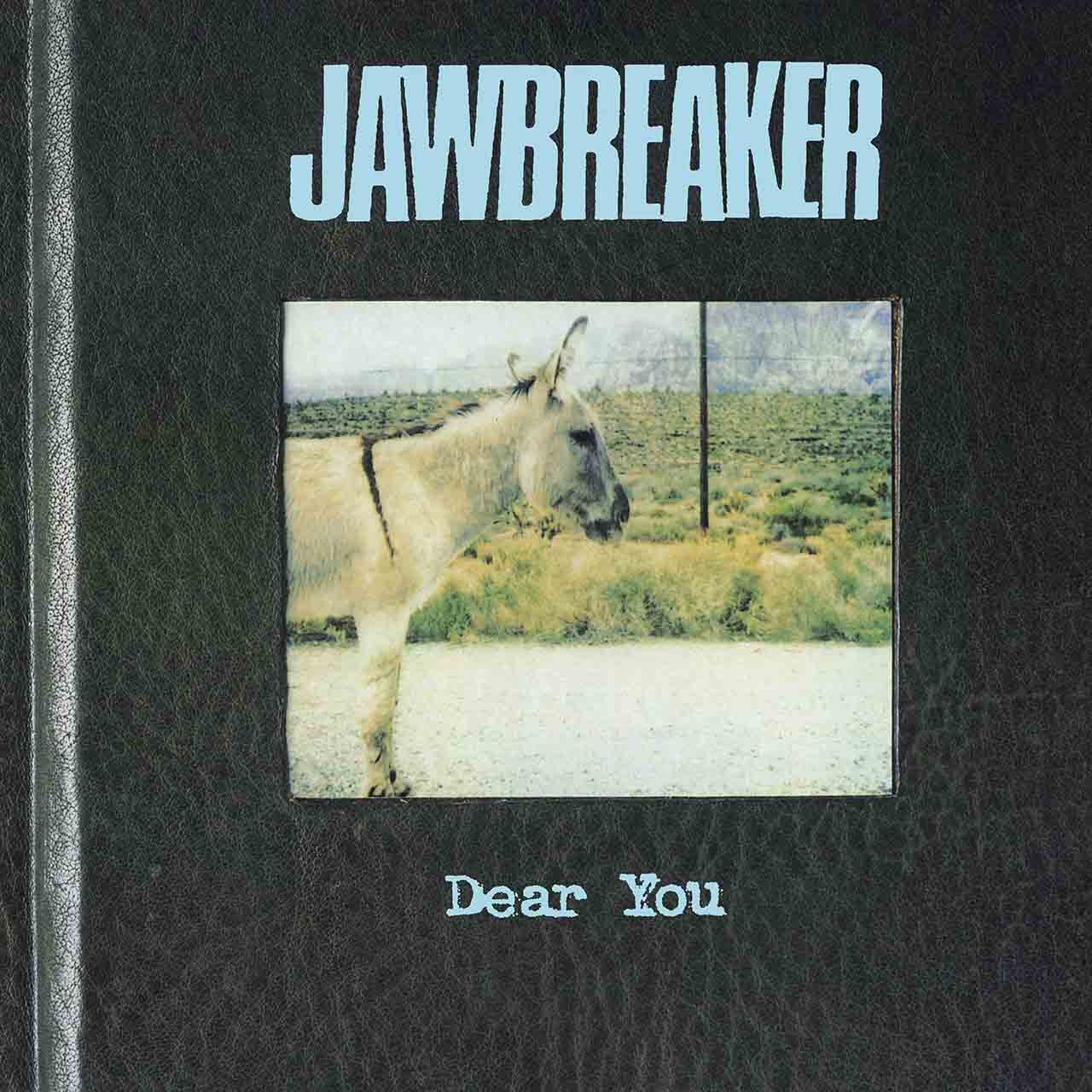In 1995, Jawbreaker had reached a crossroads. The punk trio had built up a large following in their Bay Area scene, enjoying critical acclaim and the approval of bands like Nirvana, who brought them on tour in 1993. For years, Jawbreaker insisted they’d never relinquish their independence for the seductive lure of a major label. But the wear of a half-decade of playing and touring started to show some cracks in the group’s foundation.
Complicating matters, vocalist Blake Schwarzenbach required surgery to remove a polyp from his throat, following a European tour that found him coughing up blood each night. Aside from the unexpected expense, the physical toll required some necessary changes in their M.O. Schwarzenbach, drummer Adam Pfahler, and bassist Chris Bauermeister were left with a decision: Call it a day, or do the thing they said they’d never do and agree to major label backing. The only question was whether or not their fans would follow—a scenario they saw play out firsthand when local icons Green Day went mainstream. Jawbreaker, if anything, were held to an even stricter standard.
Listen to Jawbreaker’s Dear You on Apple Music and Spotify.
“It’s a very personal band for people,” vocalist Blake Schwarzenbach said in Dan Ozzi’s book, Sellout. “Those who identify with it identify with it as theirs, and sacred, and truthful in some way.”
Jawbreaker’s frenzied swirl of punk energy and Schwarzenbach’s witty, introspective lyrics drew attention from A&R scouts years before the band was ready to humor them. But in 1995 they signed with Geffen Records for just under $1 million, beginning work on their fourth and final album, Dear You, with producer Rob Cavallo, who also produced Green Day’s Dookie. They didn’t make a pop album with their newly ample budget – not exactly. Its first single, “Fireman,” featured a video that aired on MTV’s late night alt.rock show 120 Minutes, but it was more jagged and misanthropic than the likes of Green Day, juxtaposing harsh riffs against Schwarzenbach’s lines like “I dreamt I was a fireman, I just smoked and watched you burn.”
Moments of straightforward four-chord punk abound, such as opener “Save Your Generation” and “Bad Scene, Everyone’s Fault.” But by and large, Jawbreaker had honed in on darker, more sophisticated material. On songs like “I Love You So Much It’s Killing Us Both” and “Sluttering (May 4th)” that meant foregrounding more abrasive riffs over bigger hooks. But following his recovery from throat surgery, Schwarzenbach toned down the screams and yelps, and used that more nuanced approach to write slower material with haunting layers, like the epic, almost shoegazey “Accident Prone” or the morose “Jet Black.”
Dear You became a pivotal and influential record for what eventually became emo, due to its balance of a more sophisticated punk sound with an intimately honest lyrical approach. Over time it’s become regarded as one of the most significant albums of the genre. But finding a larger audience for Dear You proved elusive at the time. Album sales stalled around 40,000 copies in its first year, and the backlash in their hometown scene began before the album was ever released. Tensions between band members boiled over as well, and a fistfight broke out in the van while they were on tour with Foo Fighters. By the time they got home, Jawbreaker had called it quits.
Jawbreaker’s Dear You did find its audience, and one that vastly eclipsed its listeners in 1995, but it took 25 years to get there. It’s been praised by Rolling Stone as one of the greatest emo albums, and standout track “Accident Prone” was included on Vulture’s list of the 100 best emo songs. The group also sold out more than half of the dates on their Dear You reunion tour months before they were to take place, which is perhaps the most concrete measure of how far they’d come. The curse of being ahead of your time means that sometimes it takes a while for everyone to catch up.
Listen to Jawbreaker’s Dear You on Apple Music and Spotify.




